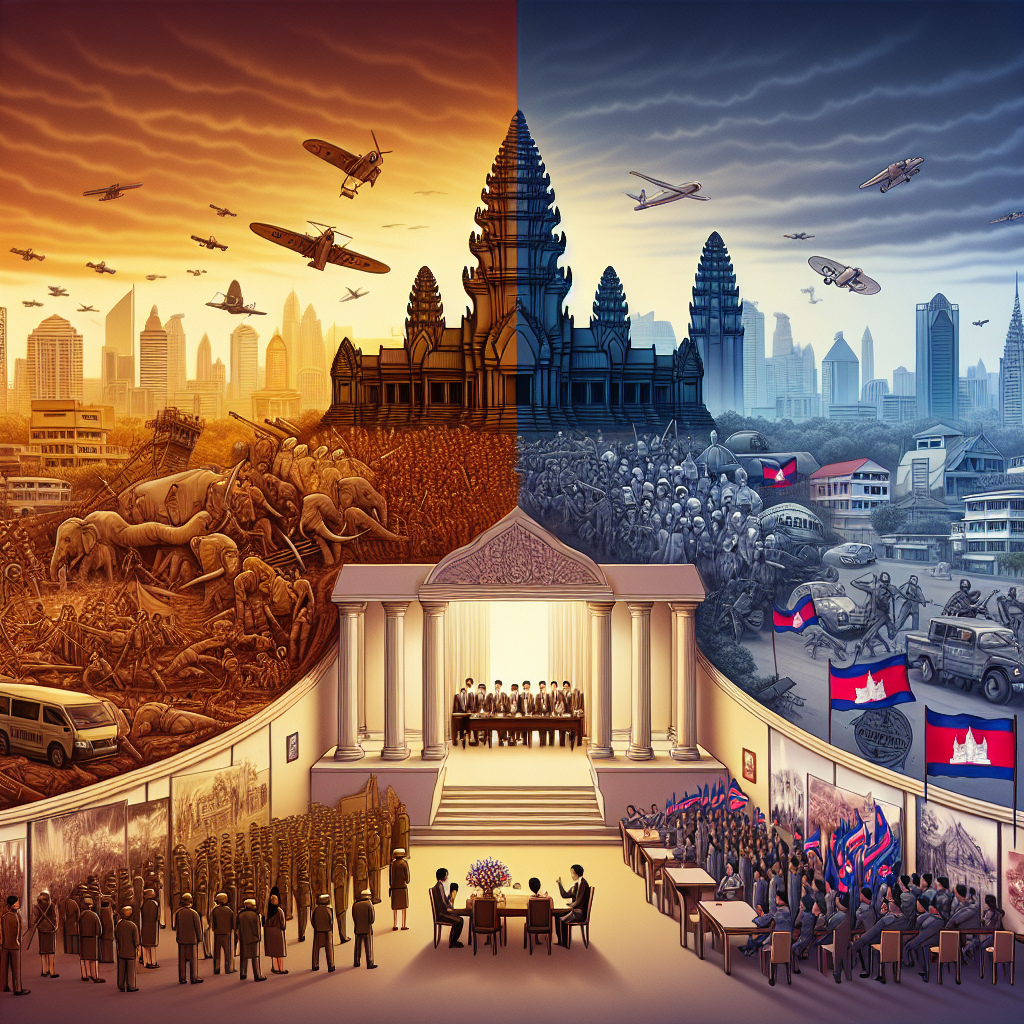Half a Century After Phnom Penh’s Fall, History Influences Cambodian Politics
Half a Century After Phnom Penh’s Fall: The Enduring Influence on Cambodian Politics
Historical Context
In April 1975, the fall of Phnom Penh marked a significant turning point in Cambodian history, leading to the rise of the Khmer Rouge regime. This period was characterized by extreme policies and widespread atrocities, leaving a lasting impact on the nation’s political landscape.
Legacy of the Khmer Rouge
The Khmer Rouge’s brutal rule, which resulted in the deaths of an estimated 1.7 million people, continues to shape Cambodia’s political environment. The regime’s legacy is evident in various aspects of contemporary Cambodian society and governance.
- Ongoing trials and tribunals for former Khmer Rouge leaders highlight the quest for justice and reconciliation.
- Survivors and their descendants remain influential in political discourse, advocating for remembrance and accountability.
- The regime’s impact is a recurring theme in educational curricula and public commemorations.
Current Political Climate
Modern Cambodian politics is deeply intertwined with its historical past. The ruling Cambodian People’s Party (CPP), led by Prime Minister Hun Sen, has maintained power for decades, often invoking the Khmer Rouge era to justify its governance and policies.
- The CPP emphasizes stability and economic growth as a counter-narrative to the chaos of the past.
- Opposition parties and activists often face challenges, with the government citing national security concerns rooted in historical fears.
- Efforts to balance development with human rights and democratic principles remain a central political issue.
Conclusion
Half a century after the fall of Phnom Penh, the shadow of the Khmer Rouge continues to loom over Cambodian politics. The historical events of the 1970s are not just a backdrop but a driving force in shaping the nation’s political dynamics, influencing both governance and opposition. As Cambodia moves forward, the interplay between past and present remains a critical factor in its political evolution.




































